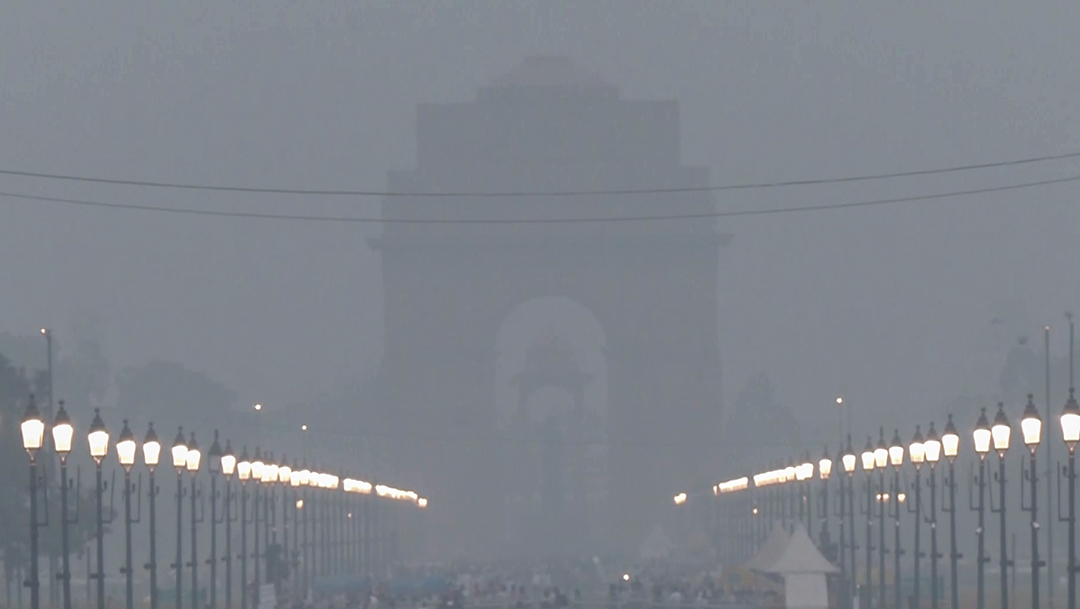The Air Quality Index (AQI) in parts of Delhi continues to hover in the ‘Very Poor’ category, prompting concerns about deteriorating air quality. According to the Central Pollution Control Board (CPCB), the AQI levels persist in this range, indicating a challenging environment for residents. Visuals from areas around Akshardham early in the morning depicted the city engulfed in smog, raising alarm bells.
As per the CPCB, the overall Air Quality Index (AQI) at Anand Vihar, Delhi, was recorded at 374 on Friday morning, marking it within the ‘ very poor’ category. The ongoing spell of poor air quality has been a cause for worry, with the India Meteorological Department (IMD) forecasting no rainfall in the National Capital until December 11. The prediction includes clear skies with shallow to moderate fog during the morning.
Congress MP Jairam Ramesh took the opportunity to criticize Union Minister Bhupender Yadav’s response to questions on public health and air pollution. Ramesh accused Yadav of providing a “gol mol” (vague) reply during a session in Parliament. The exchange occurred during the Question Hour on ‘air pollution in the NCR and the country’ in the Rajya Sabha. Ramesh specifically inquired about a potential review of the Pollution Control Act passed in 1981 and the National Ambient Air Quality Standards.
In response, Minister Yadav highlighted the government’s efforts and budgetary provisions to tackle air pollution. He mentioned the identification of 131 cities facing air quality issues and the allocation of funds accordingly. Yadav emphasized the recognition of municipalities contributing positively to the cause, suggesting awards be given to those exhibiting commendable efforts. However, the exchange underscores the opposition’s dissatisfaction with the government’s approach and calls for more concrete actions to combat the ongoing air quality crisis.
The air quality index categories range from ‘good’ (0–100) to ‘ severe’ (400–500 or above). The prolonged period of ‘ very poor’ air quality in Delhi accentuates the need for comprehensive measures to address pollution and safeguard public health. The issue is likely to fuel further debates in Parliament and draw attention to the urgency of effective policies and interventions.


